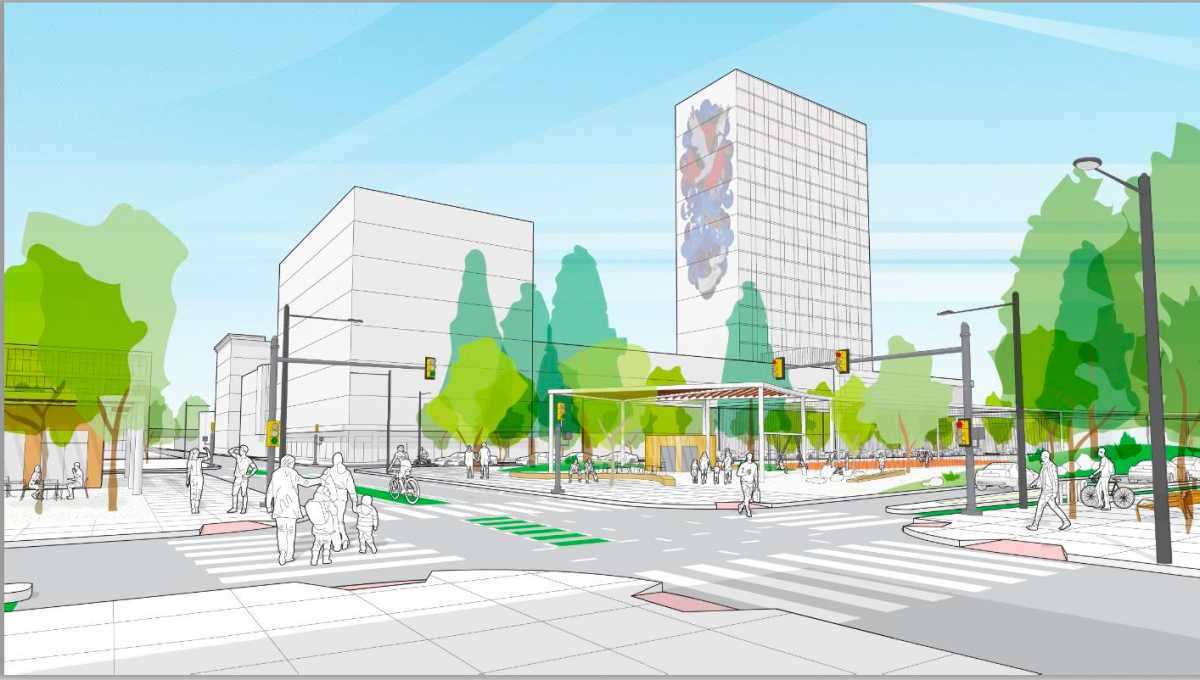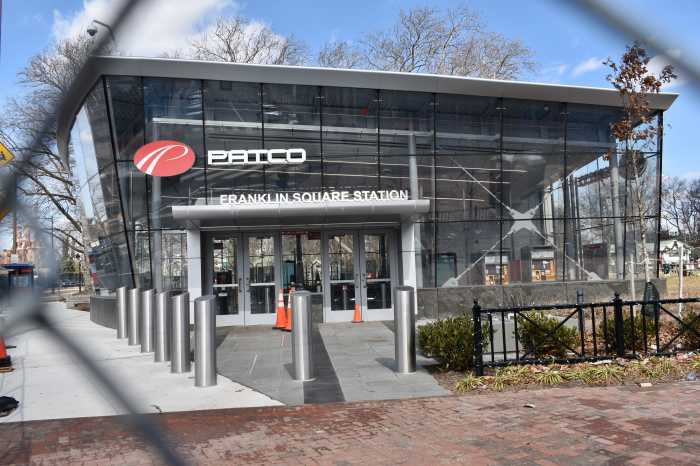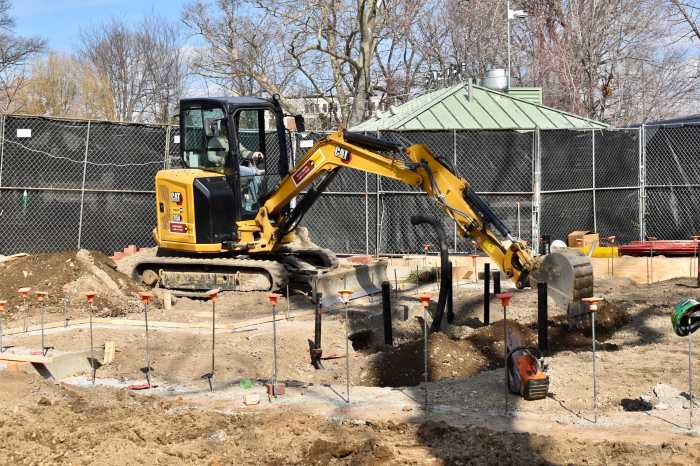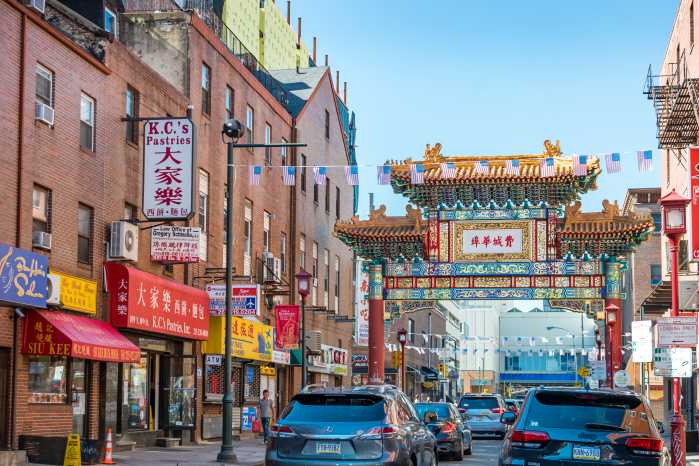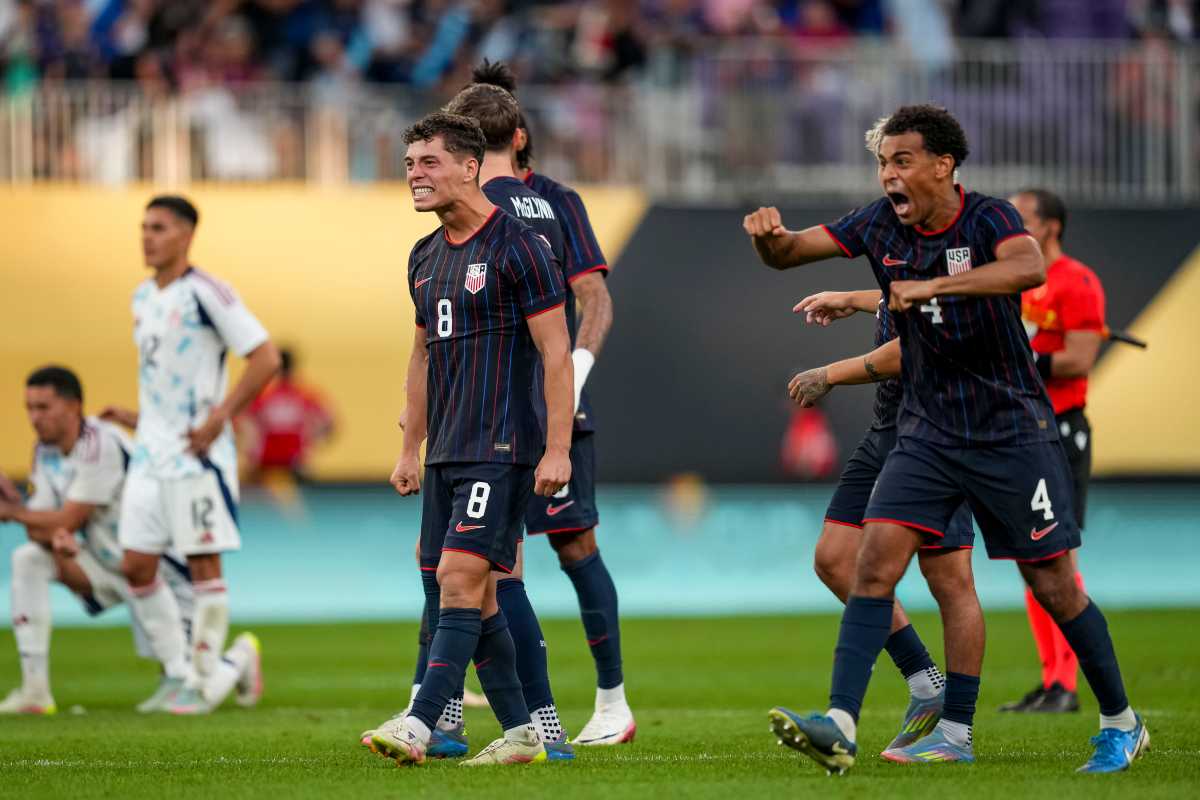The Chinatown Stitch – a project that would reconnect the neighborhood by capping a section of the Vine Street Expressway – is receiving nearly $160 million in federal funding, Philadelphia’s Congressional delegation said Monday.
The money should be enough to pay for the construction costs of the project’s first phase, which includes covering the section of I-676 from 10th Street to in-between 11th and 12th streets, officials said.
Bridges currently allow pedestrians and traffic to cross the highway; however, the express lanes are largely uncovered. Eventually, the city and the Philadelphia Chinatown Development Corporation, which are collaborating on the effort, hope to extend the cap past 13th Street.
Though uses for the two-and-half-block stretch will be determined through future community engagement, the area will almost certainly incorporate green space, a priority for neighborhood residents, officials said. Other ideas include athletic fields, a marketplace or a cafe, according to a Chinatown Stitch report published in December.
The cap is being designed to connect to the Rail Park, which occupies a section of a former railway viaduct in the Callowhill neighborhood. Future expansion plans would extend the park toward Chinatown.
In conjunction with covering the expressway, safety improvements will be made to Vine Street’s local lanes, which are at ground level. Those changes will likely include a lane reduction, the report states.
Engineering and design work will occur over the next 15 to 18 months, with construction on the cap slated to begin in 2027, PCDC Executive Director John Chin said at a news conference Monday.
Chinatown Stitch is being awarded $158,911,664 from the U.S. Department of Transportation’s Reconnecting Communities Pilot, a grant program created by the Bipartisan Infrastructure Law to help neighborhoods negatively impacted by highways and other infrastructure.
Last year, the Stitch project received $1.8 million through the same pilot initiative to fund the public engagement and planning process.
Parts of Chinatown were demolished in the 1950s when Vine Street was widened to make way for the expressway. An initial plan for the highway, which connects I-95 and I-76, drew strong opposition from residents, and the limited-access road was completed in 1991.
“We will finally be repairing a historic wrong, an injustice that was done to a community,” U.S. Rep. Brendan Boyle said Monday. “It is truly a transformative day in the history of our city.”
Caps for I-676 in Chinatown have been floated for at least two decades, but no previous project was able to advance far enough to secure significant funding.
Mayor Cherelle Parker said the federal grant is an example of the intergovernmental approach she has often mentioned on the campaign trail and since taking office in January.
“From Philadelphia’s mayor, first and foremost, President Joe Biden, thank you President Joe Biden for delivering for our city,” she said at the announcement.



